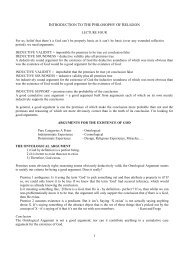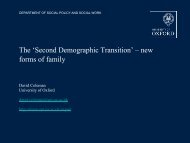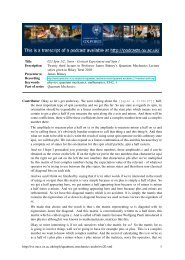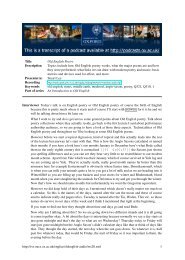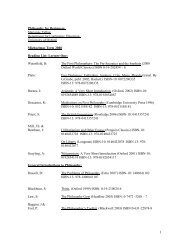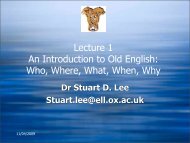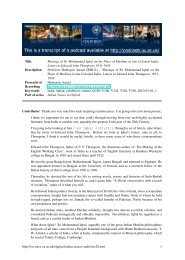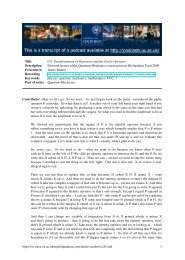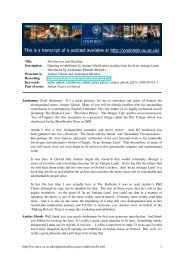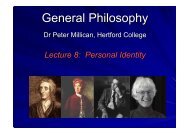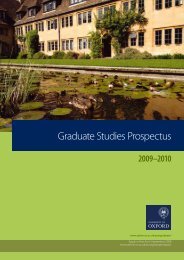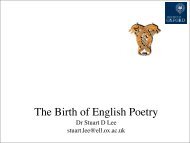Old English Prose - University of Oxford
Old English Prose - University of Oxford
Old English Prose - University of Oxford
Create successful ePaper yourself
Turn your PDF publications into a flip-book with our unique Google optimized e-Paper software.
<strong>Old</strong> <strong>English</strong> <strong>Prose</strong>advanced level in terms <strong>of</strong> the devices they were using and it was beginning to show developmentas I said with Appolonius <strong>of</strong> Tyre into the novel. We already have short stories and then we aremoving into that perhaps that genre, that medium. And who knows what would have happened inthey hadn’t lost at Hastings, maybe that whole idea would have developed far quicker than it doesnow, moving to things like we get in <strong>Old</strong> Norse like the sagas.So in summary it begins with Alfred who was seeking to re-establish learning after the Vikings,this is prose that is and the Navy if you are interested. Most old <strong>English</strong> prose is coveringfactual documents but it’s varied, some <strong>of</strong> it’s nonsensical, some <strong>of</strong> it is undoubtedly literary,those sermons, those homilies, those saints lives, biblical translations are literary and then youadd the philosophical text like the consolation <strong>of</strong> philosophy etc.We do know about the authors or more about them, more authors certainly than the poetry. Weknow a fair bit about the audience because this fits into so many things we know about the monastic<strong>of</strong>fice and other things and therefore we know quite a bit about performance because these wereimportant documents.We still face issues <strong>of</strong> authorship as I’ve talked about the manuscript transmission which doesthrow up all kinds <strong>of</strong> problems, but it was well developed, it’s easy to read hopefully and easy totranslate. Is it any good? Yes, <strong>of</strong> course it is, go away and read it.So next week the final lecture it’s fifth week, you’ve got tons <strong>of</strong> essays to do so it’s kind <strong>of</strong> light,they probably all are light but anyway this is the bring the popcorn one. Welcome to medievalland, we are going to take you through the history <strong>of</strong> what happens to Anglo Saxon and <strong>Old</strong><strong>English</strong> after 1066. The re-use by later writers going way up into the 20th century. Portrayals<strong>of</strong> the Anglo Saxons and we are going to find out what the contributions to <strong>Old</strong> <strong>English</strong> were byAlfred Hitchcock, Steven Spielberg and Leonard Bernstein. Thank you very much.c○ 2010 <strong>University</strong> <strong>of</strong> <strong>Oxford</strong>, Stuart LeeThis transcript is released under the Creative Commons Attribution-Non-Commercial-Share Alike 2.0 UK: England & Wales Licence. It can be reused and redistributed globallyprovided that it is used in a non-commercial way and the work is attributed to the licensors.If a person creates a new work based on the transcript, the new work must be distributedunder the same licence. Before reusing, adapting or redistributing, please read and complywith the full licence available at http://creativecommons.org/licenses/by-nc-sa/2.0/uk/10 http://rss.oucs.ox.ac.uk/engfac/oldenglish-audio/rss20.xml



